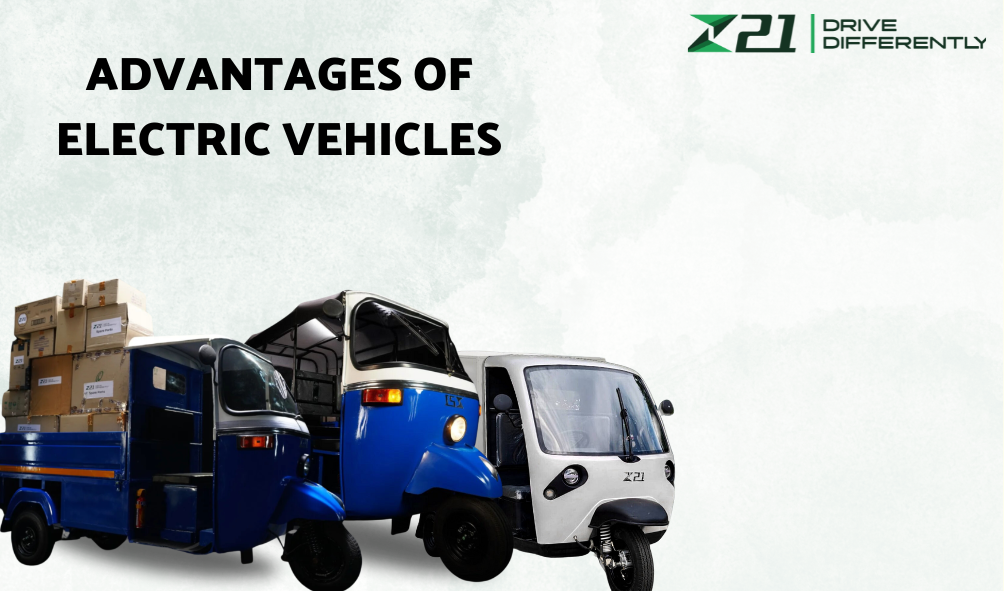Electric vehicles (EVs) are transforming the world of transportation, offering numerous benefits over traditional fuel-powered cars. For those considering making the switch, understanding the advantages of electric vehicles can provide valuable insight into why they’re paving the way for a sustainable future. In this guide, we’ll cover the key benefits of EVs and why they’re positioned to become the dominant form of transportation.
Environmental Benefits of Electric Vehicles
One of the main advantages of electric vehicles is their positive impact on the environment:
- Zero Emissions
EVs produce no tailpipe emissions, reducing air pollution in urban areas. By eliminating exhaust emissions, EVs contribute to cleaner air and lower greenhouse gas emissions, making them an eco-friendly alternative to traditional vehicles. - Reduced Carbon Footprint
When powered by renewable energy sources, EVs can significantly reduce the carbon footprint of transportation. As more charging stations adopt solar, wind, and other renewable energy sources, EVs will further reduce overall emissions. - Less Noise Pollution
EVs operate quietly, reducing noise pollution in cities and densely populated areas. This quiet operation enhances the urban living environment, particularly in areas with heavy traffic.
Financial Advantages of Electric Vehicles
Many people are drawn to EVs for their cost savings over time, another significant advantage of electric vehicles:
- Lower Fuel Costs
Charging an EV generally costs less than filling up a tank with gasoline. With rising fuel prices, EV owners can enjoy considerable savings on fuel expenses, especially when charging at home during off-peak hours. - Reduced Maintenance Costs
EVs have fewer moving parts than internal combustion engine (ICE) vehicles, resulting in lower maintenance costs. Since they don’t require oil changes, fuel system repairs, or exhaust maintenance, EV owners can save on upkeep, making EV ownership more affordable over time. - Government Incentives
Many governments offer financial incentives, including tax credits, rebates, and reduced registration fees, to encourage EV adoption. These incentives can offset the initial cost of purchasing an EV, making them more accessible to a wider range of consumers.
Performance Advantages of Electric Vehicles
When it comes to performance, EVs offer several benefits that set them apart:
- Instant Torque and Acceleration
Electric motors provide instant torque, allowing for rapid acceleration. This feature gives EVs a smooth and responsive driving experience, making them enjoyable and efficient for city and highway driving. - High Energy Efficiency
EVs convert more energy from the battery to movement compared to gasoline vehicles, which lose a significant amount of energy as heat. This energy efficiency is one of the core advantages of electric vehicles, enabling them to use less energy for the same distance traveled. - Regenerative Braking
Many EVs use regenerative braking, a system that captures energy usually lost during braking and feeds it back into the battery. This feature helps extend the range of the EV and improves overall efficiency.
Social and Economic Advantages of Electric Vehicles
In addition to individual benefits, EVs also offer broader advantages for society:
- Job Creation in Green Technology
The shift toward electric vehicles is driving growth in the green technology sector. As demand for EVs rises, so does the need for skilled workers in EV manufacturing, battery production, and renewable energy. - Energy Independence
By reducing dependence on imported oil, EVs support energy independence for many countries. This shift can help stabilize economies and create more resilience against global fuel price fluctuations. - Improved Public Health
Reducing vehicle emissions leads to cleaner air, which benefits public health. Lowering pollution levels can reduce respiratory illnesses and improve quality of life, especially in cities with high pollution levels.
The Future of Electric Vehicles
With advancements in battery technology, charging infrastructure, and renewable energy, the advantages of electric vehicles will continue to expand. Innovations such as wireless charging, longer battery life, and increased range are making EVs more practical and accessible for consumers. As EV adoption grows, so will the benefits for individuals and communities alike.
The advantages of electric vehicles make them an attractive choice for eco-conscious consumers, city dwellers, and those seeking long-term financial savings. As the future of transportation shifts toward cleaner, quieter, and more efficient options, Electric 3 wheeler Vehicles are set to lead the way. For those interested in exploring high-performance and environmentally friendly electric vehicle options, Zero21 offers models designed to support a sustainable and cost-effective driving experience.


